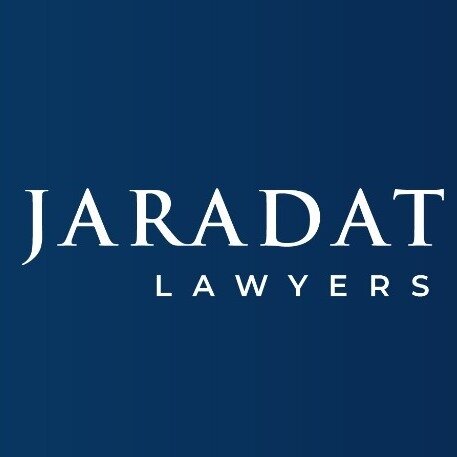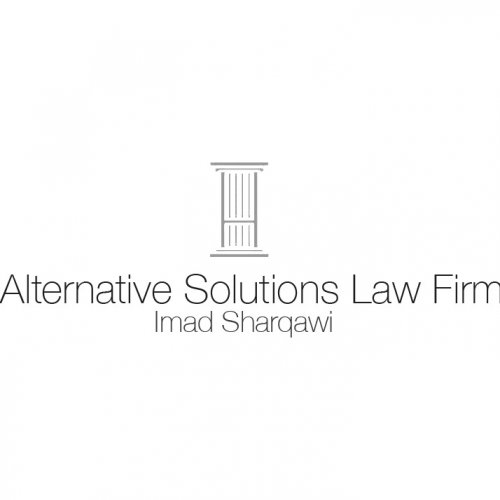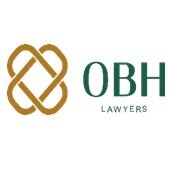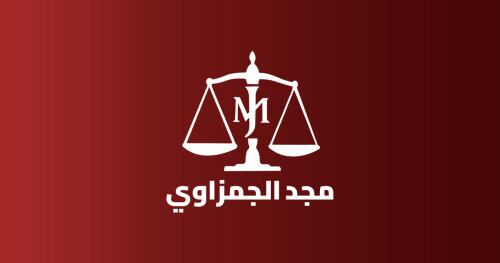Best Government Relations & Lobbying Lawyers in Hashemite Kingdom of Jordan
Share your needs with us, get contacted by law firms.
Free. Takes 2 min.
Or refine your search by selecting a city:
List of the best lawyers in Hashemite Kingdom of Jordan

About Government Relations & Lobbying Law in Hashemite Kingdom of Jordan
Government relations and lobbying in the Hashemite Kingdom of Jordan involve engaging with and influencing public policy and decision-making processes. It typically includes activities aimed at establishing communication between businesses, interest groups, and government officials. This field is regulated to ensure transparency and ethical behavior in interactions with government officials. In Jordan, lobbying is less formalized compared to other countries, but it remains a significant aspect of policy advocacy and influence.
Why You May Need a Lawyer
There are several scenarios in which individuals or businesses might seek legal advice related to government relations and lobbying in Jordan:
- To navigate the complex regulatory environment governing lobbying activities.
- When engaging in advocacy efforts on behalf of a business or organization, ensuring compliance with local laws.
- For assistance in drafting and submitting lobbying materials or proposals to governmental bodies.
- To defend against any allegations of impropriety or breaches in lobbying regulations.
- To understand international compliance issues for multinational organizations operating in Jordan.
Local Laws Overview
The legislative framework regulating government relations and lobbying in Jordan is governed by a combination of law, ethics, and informal practices. Key aspects include:
- Lobbying activities in Jordan are subject to general laws that govern interactions with public officials.
- There may be specific disclosure requirements for certain lobbying activities, especially those involving international entities.
- Ethical guidelines govern interactions with government officials to prevent corruption and ensure transparency.
- In some cases, lobbying activities may need to be disclosed in public procurement processes or when they relate to legislative proposals.
Frequently Asked Questions
What is considered lobbying in Jordan?
Lobbying in Jordan generally refers to any activity aimed at influencing policy or decision-making processes within government bodies. This can involve direct communication with officials, as well as public campaigns and advocacy efforts.
Is lobbying legal in Jordan?
Yes, lobbying is legal in Jordan, but it is regulated to ensure transparency and prevent corruption. It is important to comply with any relevant laws and ethical guidelines.
Are there specific registration requirements for lobbyists?
Unlike countries with formal lobbying laws, there may not be specific registration requirements in Jordan, but certain activities may require disclosure or adherence to ethical guidelines.
What rules govern interactions with government officials?
Interactions with government officials are governed by ethical guidelines and codes of conduct designed to ensure transparency and prevent conflicts of interest or corruption.
How can a lawyer assist with lobbying efforts?
A lawyer can assist by ensuring compliance with legal requirements, preparing documentation, advising on ethical practices, and advocating on behalf of clients to government bodies.
Is there a difference between lobbying and advocacy in Jordan?
While often used interchangeably, lobbying typically involves direct interaction with policymakers, whereas advocacy may include broader efforts to influence public opinion and decision-making indirectly.
What are the penalties for violating lobbying laws?
Penalties can vary depending on the severity of the violation and may include fines, restrictions on future lobbying activities, or other legal consequences.
Can foreign entities lobby in Jordan?
Yes, foreign entities can engage in lobbying activities, but they must comply with local laws and may have additional reporting requirements.
What is the role of ethics in lobbying?
Ethics play a critical role in ensuring that lobbying activities are conducted transparently and that interactions with government officials are free from undue influence or corruption.
How transparent is the lobbying process in Jordan?
The transparency of lobbying in Jordan is improving with ongoing efforts to formalize and regulate the industry, but it may still vary based on the specific sector or activity involved.
Additional Resources
For those seeking further information or support, the following resources may be helpful:
- The Jordanian Bar Association can provide referrals to legal experts specializing in lobbying law.
- Government publications and official websites offer updates on rules and regulations relating to lobbying.
- Non-governmental organizations and advocacy groups may provide insights into ethical lobbying practices.
Next Steps
If you require legal assistance in the area of government relations and lobbying, consider the following steps:
- Consult a lawyer who specializes in government relations and understands the local legal landscape in Jordan.
- Prepare documentation outlining your lobbying goals and strategies to present to your legal advisor.
- Ensure your activities comply with both local laws and international standards if applicable.
- Stay informed about changes to laws and practices affecting lobbying in Jordan by following updates from relevant governmental and non-governmental bodies.
Lawzana helps you find the best lawyers and law firms in Hashemite Kingdom of Jordan through a curated and pre-screened list of qualified legal professionals. Our platform offers rankings and detailed profiles of attorneys and law firms, allowing you to compare based on practice areas, including Government Relations & Lobbying, experience, and client feedback.
Each profile includes a description of the firm's areas of practice, client reviews, team members and partners, year of establishment, spoken languages, office locations, contact information, social media presence, and any published articles or resources. Most firms on our platform speak English and are experienced in both local and international legal matters.
Get a quote from top-rated law firms in Hashemite Kingdom of Jordan — quickly, securely, and without unnecessary hassle.
Disclaimer:
The information provided on this page is for general informational purposes only and does not constitute legal advice. While we strive to ensure the accuracy and relevance of the content, legal information may change over time, and interpretations of the law can vary. You should always consult with a qualified legal professional for advice specific to your situation.
We disclaim all liability for actions taken or not taken based on the content of this page. If you believe any information is incorrect or outdated, please contact us, and we will review and update it where appropriate.
Browse government relations & lobbying law firms by city in Hashemite Kingdom of Jordan
Refine your search by selecting a city.














